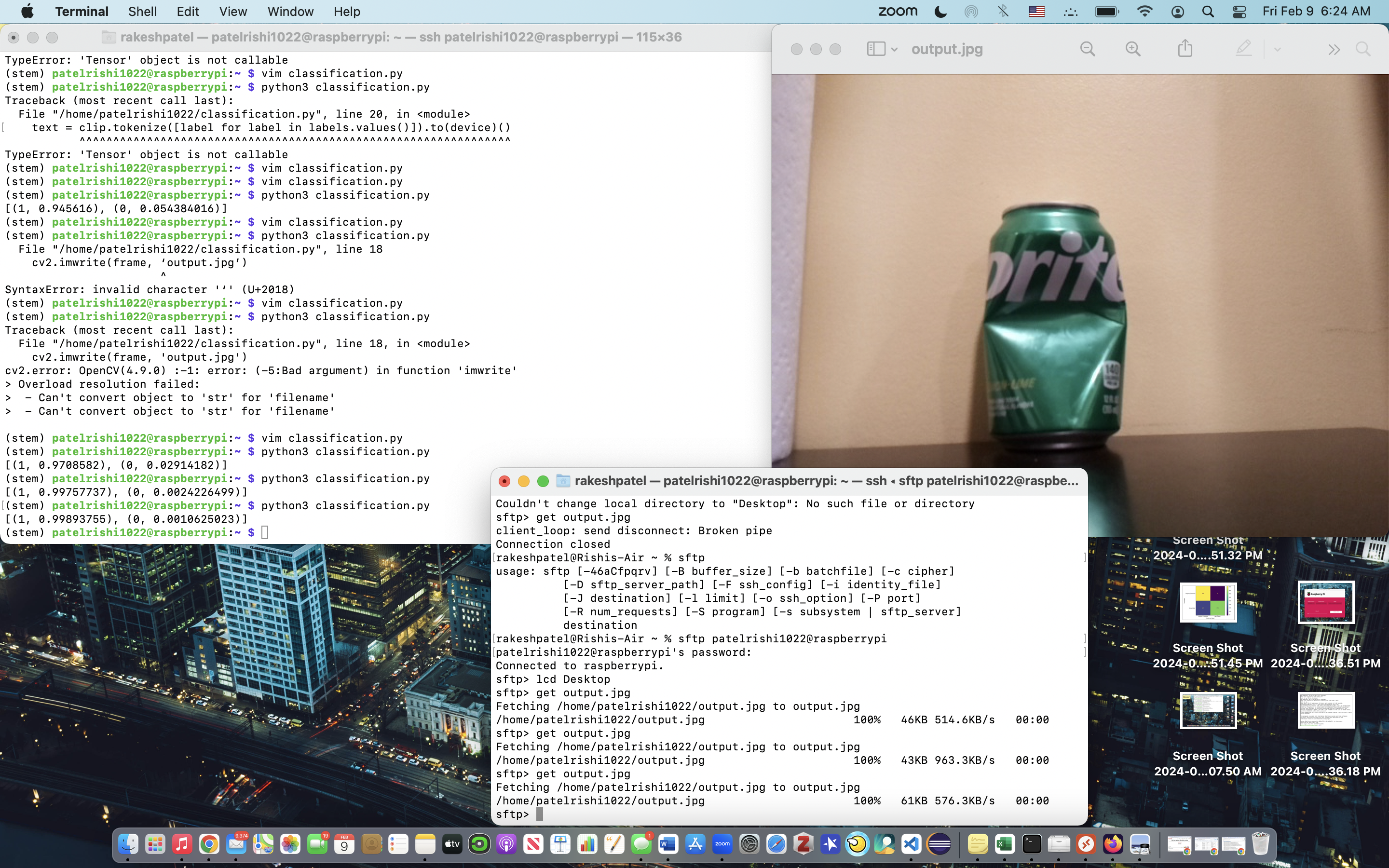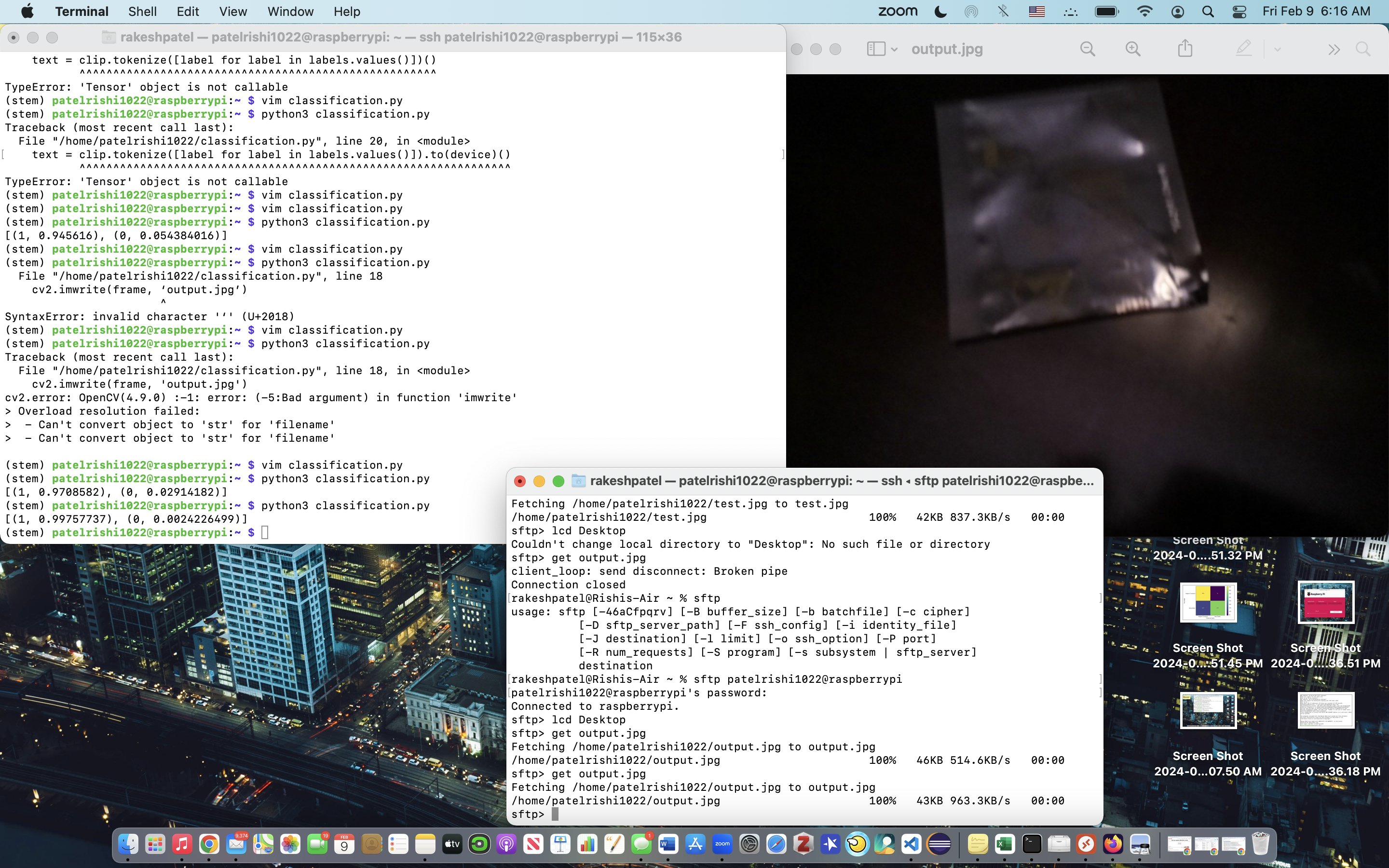Evidence of Work


This waste management project holds significant importance for several reasons. Firstly, it addresses a pressing environmental concern associated with sports stadiums and facilities, which historically have had a detrimental impact on the environment due to the substantial amount of waste generated during events. By implementing a robotic waste disposal system and finetuning the CLIP zero-shot classification model, this project aims to revolutionize waste management practices in these settings, offering a sustainable solution to minimize waste generation and reduce environmental impact. Secondly, this project contributes to advancing the field of waste management by integrating technologies such as robotics, artificial intelligence, and machine learning. By harnessing the power of these technologies, it is not only improving the efficiency and accuracy of waste classification and disposal processes but also paving the way for future innovations in waste management systems. Additionally, this project serves as a model for promoting environmental responsibility and sustainability in other sectors beyond sports stadiums, demonstrating the feasibility and effectiveness of implementing advanced waste management solutions to address global environmental challenges. Overall, this project holds importance in both mitigating environmental degradation and driving technological innovation towards a more sustainable future.

